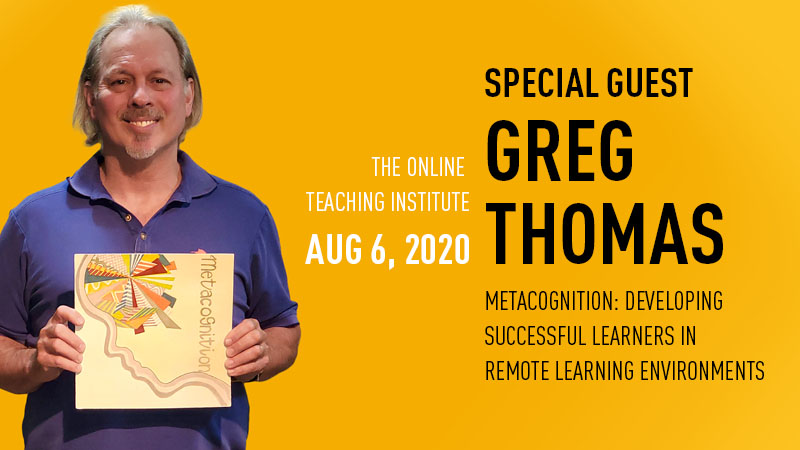Special Guest Greg Thomas

Metacognition: Developing successful learners in remote learning environments
'Metacognition' refers to an individual's knowledge, control, and awareness of their thinking and learning processes and strategies. Students (and teachers) vary in relation to their metacognition. However, it is agreed upon that the quality of any individual's metacognition impacts the quality of their learning. The shift to remote learning environments necessitates consideration of how we conceptualize and enact instruction that develops our students to be successful in such environments, whether synchronous or asynchronous. A key consideration is understanding how we can embed and model the prompts that challenge students to prepare and plan for learning, to monitor their learning progress, and to evaluate and reflect on their learning outcomes. This presentation will provide both theoretical and practical perspectives regarding developing and enhancing students' metacognition that are relevant to our evolving, remote instructional contexts.
About Greg Thomas
Greg Thomas is a Professor in the Department of Secondary Education in the Faculty of Education. He has been teaching about and conducting research in the field of metacognition since 1988, both as a high school science teacher and, since 1997, at the university level. His work addresses particularly the interface between theory and practice, and in particular the conceptualization and construction of metacognitively oriented environments that seek to acknowledge the importance of the material that is to be learned as well as the need to develop students as successful thinkers and learners who can adapt to changing contexts.